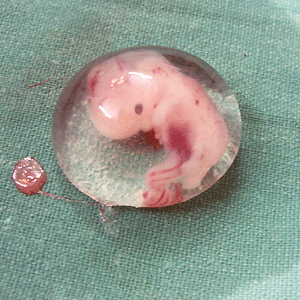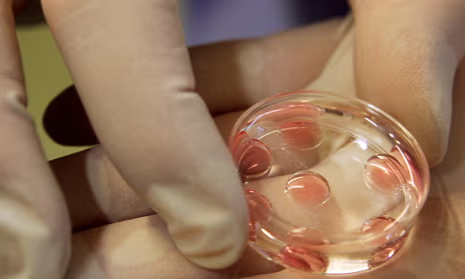
Scientists have discovered a tablet for couples struggling to conceive with IVF treatment to boost their chances of conception.
The researchers claimed that the drug, known as OXO-001, developed by the Spanish biotechnology company Oxolife, had displayed “promising” results in the initial trials.
When used in conjunction with fertility treatment, it has the ability to improve the process of embryo implantation by acting directly on the inner lining of the womb.
In the new study, which took place between September 2021 and January 2023, about 96 infertile women who were under the age of 40 and were getting fertility therapy—either in vitro fertilization (IVF) or intracytoplasmic sperm injection (ICSI) using donor eggs—participated. These women were located at 28 different centers across Europe.
Either a placebo or OXO-001 was administered to them on a twice-daily basis, beginning one menstrual cycle prior to the embryo transfer and continuing for five weeks, respectively.
Those who were treated with OXO-001 had “ongoing pregnancy rates” that were measured 10 weeks after embryo transfer and were 46.3%, whereas those who were given a placebo had “ongoing pregnancy rates” that were measured at 35.7%.

When they presented their research at the 40th annual meeting of the European Society of Human Reproduction and Embryology (ESHRE) in Amsterdam, they referred to this discovery as a “clinically significant finding.”
The number of women who went on to have a live delivery was also found to have increased, according to them, and this rise was clinically significant.
According to the findings of the study, which are also going to be published in the journal Human Reproduction, the live birth rate was 42.6% for women who took the new pill, whereas it was only 35.7% for those who took the placebo.
Women in both groups experienced side effects that were comparable to one another, such as headaches, nausea, vomiting, gastrointestinal difficulties, and dizziness, the majority of which were mild to moderate in severity.
The medicine had already been subjected to safety evaluations in preliminary investigations, which are often referred to as pre-clinical trials.
At this point, it is going to be tested on a more extensive group of women, including those who are planning to use their own eggs.

According to Dr. Agnes Arbat, chief executive officer of Oxolife, “Most rounds of in vitro fertilization or in vitro fertilization with in vitro fertilization still end in failure. Many of these failures are due to the fact that a viable embryo does not implant.”
Those who are interested in having a child would consequently profit tremendously from the availability of a tablet that is easy to take and significantly increases the likelihood of success. This study, which is part of proof-of-concept phase two, demonstrates that hope is now one step closer.
“This study was purposefully designed to include only women who used donor eggs so that it could single out the true effect that OXO-001 has on the endometrium,” she continued.
“However, we are of the opinion that OXO-001 has the potential to operate just as well in individuals who use their own eggs, and we are now in the process of developing pivotal phase three clinical research in this more extended group in order to support product registration.